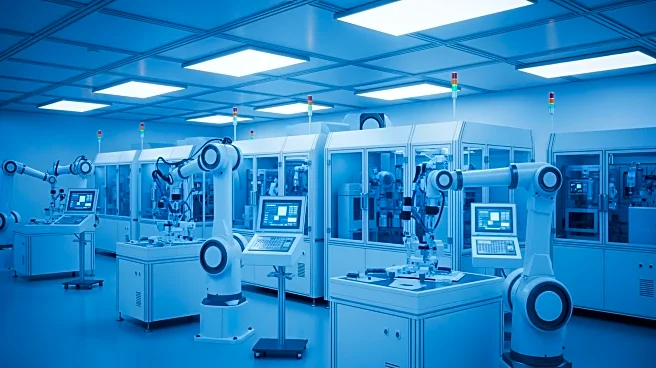What's Happening?
AstraZeneca has unveiled its newly-expanded manufacturing facility in Coppell, Texas, following a $445 million investment. This expansion is part of AstraZeneca's broader $50 billion investment in U.S.
research and development and manufacturing over the next five years. The Coppell facility, which is the sole global manufacturing site for Lokelma, will double its production capacity to serve patients in the United States and over 50 other countries. The expansion includes the addition of two new manufacturing lines and enhancements to support drug substance and product testing, warehousing, and administrative space. The facility employs over 250 people and plays a significant role in supporting the local workforce.
Why It's Important?
The expansion of AstraZeneca's facility in Texas is a critical development for the pharmaceutical industry, particularly in the production of Lokelma, a drug used to treat hyperkalemia. This move underscores AstraZeneca's commitment to strengthening its manufacturing capabilities in the U.S., which is its largest market by sales. The investment is expected to enhance the company's ability to meet global demand for Lokelma, thereby improving patient access to essential medications. Additionally, the expansion supports local economic growth and job creation, aligning with Texas' vision for scientific innovation and development.
What's Next?
AstraZeneca plans to continue its investment in U.S. manufacturing and research, with further developments expected in its Virginia facility. The company is also focusing on STEM education initiatives, partnering with Learning Undefeated to inspire future leaders in manufacturing careers. The interactive educational mobile lab, Breakout Box: Manufacturing Mission, will be available to local schools, providing students with immersive experiences in high-demand manufacturing fields.
Beyond the Headlines
The expansion of AstraZeneca's facility highlights the growing importance of pharmaceutical manufacturing in the U.S. and its role in global healthcare. It also reflects the increasing demand for specialized drugs like Lokelma, which address specific medical conditions. The investment in STEM education initiatives indicates a long-term commitment to developing a skilled workforce capable of supporting advanced manufacturing processes.








